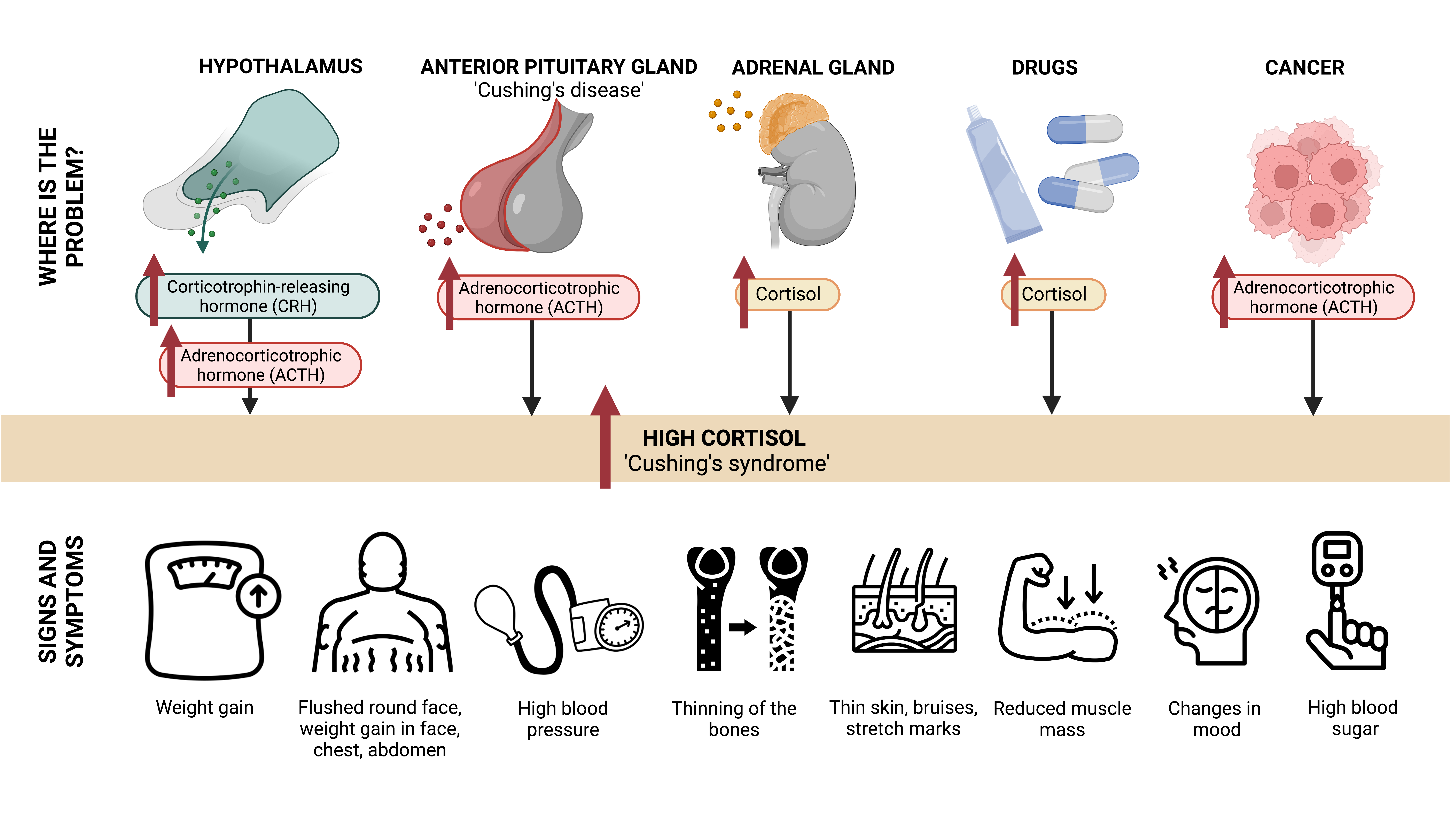Have you ever poured your heart into a healthy diet and exercise routine, only to see the needle on the scale barely budge?
You're not alone.
A sneaky culprit might be lurking in your body, silently hindering your weight loss efforts: cortisol, the aptly nicknamed "stress hormone."
What is Cortisol and Why is it Called the Stress Hormone?
Cortisol is a steroid hormone produced by the adrenal glands, located atop your kidneys. It plays a crucial role in various bodily functions, including:
Regulating blood sugar levels
Cortisol helps convert stored glycogen into glucose for energy, especially during stressful situations.
Modulating inflammation
Cortisol suppresses the immune system, reducing inflammation and helping the body heal from injury.
Boosting energy and alertness
During a "fight-or-flight" response, cortisol increases heart rate, blood pressure, and blood sugar levels, providing a surge of energy.
However, when stress becomes chronic, cortisol levels remain elevated, earning it the title "stress hormone."
This constant flood of cortisol wreaks havoc on your body, including hindering your fat loss goals.
How Cortisol Impedes Fat Loss
Chronically high cortisol levels can sabotage your weight loss efforts in several ways:
Increased fat storage
Cortisol promotes the breakdown of muscle tissue for energy, while simultaneously encouraging fat storage, particularly around the abdomen.
This "stress belly" effect is a common consequence of chronic stress.
Stimulates appetite and cravings
Cortisol triggers the release of ghrelin, the hunger hormone, and suppresses leptin, the satiety hormone, leading to increased cravings and overeating, especially for sugary and fatty foods.
Disrupts sleep patterns
Stress and elevated cortisol can disrupt sleep quality, which impacts metabolism and hormone regulation, further hindering weight loss.
Slows down metabolism
Cortisol can decrease the activity of thyroid hormones, responsible for regulating metabolism and calorie burning.
This metabolic slowdown makes it harder to burn calories and lose weight.
Breaking Free from the Cortisol Clutch
While cortisol might seem like a formidable foe, there are effective ways to manage its levels and reclaim your fat loss journey:
Prioritize stress management
Practice relaxation techniques like meditation, yoga, deep breathing, or spending time in nature to decrease cortisol levels and calm your mind.
Get enough sleep
Aim for 7-8 hours of quality sleep each night to regulate hormones and boost metabolism.
Nourish your body with a balanced diet
Focus on whole, unprocessed foods, including fruits, vegetables, lean protein, and healthy fats. Avoid sugary and processed foods, which can spike cortisol levels.
Regular exercise
Physical activity is a natural stress reliever. Aim for at least 30 minutes of moderate-intensity exercise most days of the week.
Connect with loved ones
Strong social connections can buffer the effects of stress and promote overall well-being.
Bonus Tip
Consider incorporating adaptogens, herbs that help the body adapt to stress, into your routine. Ashwagandha, rhodiola, and holy basil are some popular options that may help manage cortisol levels.
Remember: Cortisol is a natural hormone, and occasional spikes are inevitable. The key is to manage chronic stress and keep cortisol levels in check to optimize your weight loss journey and overall health.
Beyond the Blog
By understanding the impact of cortisol and implementing these tips, you can take control of your stress and unlock your body's true fat-burning potential.
Remember, a healthy, stress-managed lifestyle is the key to sustainable weight loss and overall well-being.
This blog post is just the beginning of your journey.
Keep exploring, learning, and applying these strategies to conquer the "stress hormone" and achieve your fat loss goals!





:max_bytes(150000):strip_icc()/Health-Ways-to-Lower-Cortisol_Horiz-3b2f5e9ccace4c20b1416d36c0f93914.jpg)
